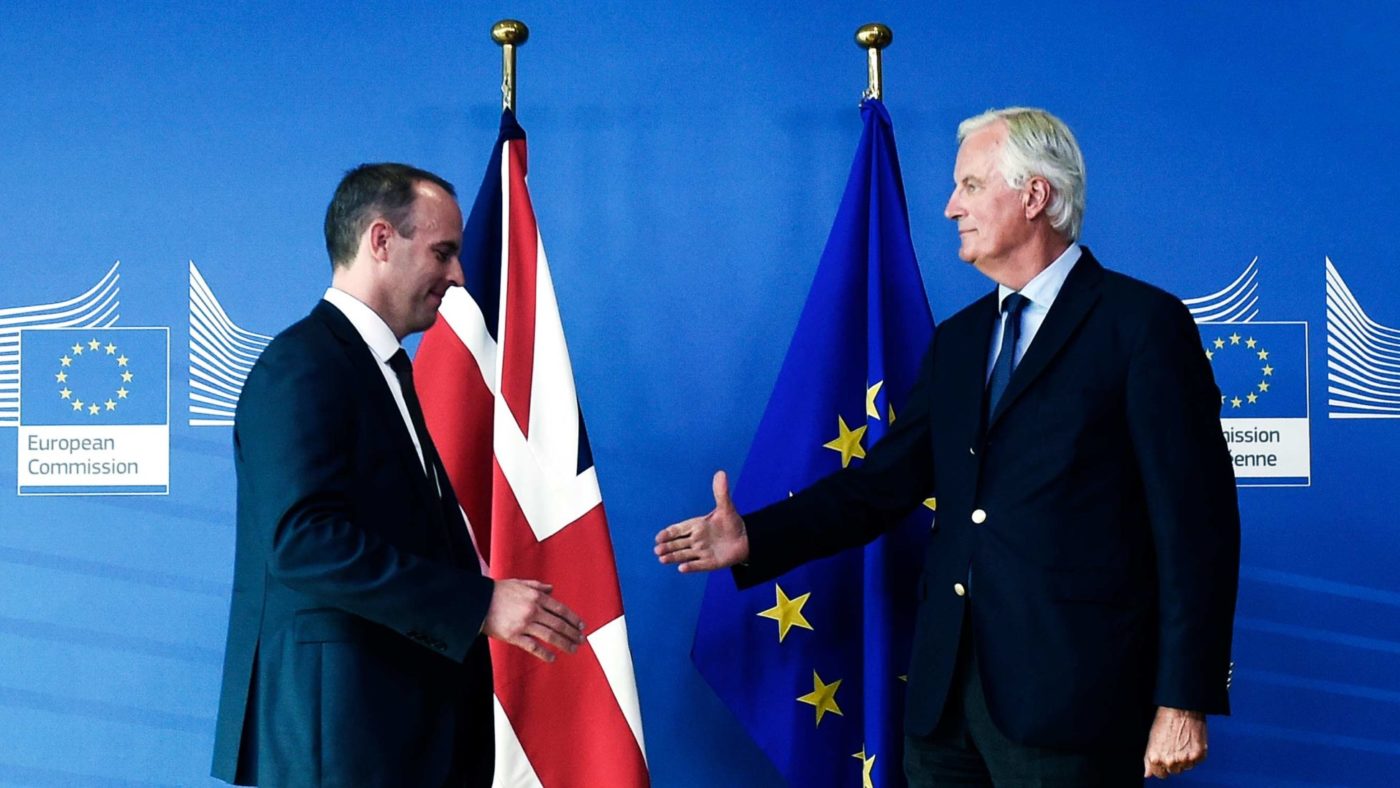On Sunday evening there was a flurry of speculation that the UK and EU had finally reached a deal. Brexit Secretary Dominic Raab flew out to Brussels to meet the EU’s chief negotiator Michel Barnier, which appeared to signal the potential for political progress in negotiations. But, just hours later, the tentative deal had collapsed, leaving the UK-EU talks still stalled only days ahead of a summit of EU leaders this week.
With under six months until the Article 50 process expires and the UK legally leaves the EU, either with or without an agreement, lack of progress on the terms of the UK’s withdrawal – let alone the framework for the future relationship – is concerning. It is important to remember that, unlike most other international deals, failure to reach an agreement doesn’t mean UK-EU relations continue as per the status quo. It means all preferential terms between the UK and the EU fall away, and we enter what has been termed a “No Deal” or “WTO” scenario.
This is in no one’s interest, and the UK and EU should work hard to avoid this outcome. But the intense difficulty in agreeing a mutually acceptable version of the Irish “backstop”, as well as a fractured political landscape in Westminster, means that a negotiated, smooth Brexit is by no means a guarantee. It is therefore important for the UK government to prepare for a possible No Deal outcome. This will, in part, require serious consideration of what the failure to reach a preferential agreement with the EU will mean for UK growth prospects in the medium-long term.
That us why Open Europe has today published a new macroeconomic study of the economic consequences of such an outcome. We model a scenario in which tariffs, customs, and non-tariff barriers are introduced in trade between the UK and the EU. Under this scenario, we find that UK GDP growth would be around 2.2 per cent lower in 2030 than would otherwise have been the case. While this is a material cost, our model finds that the UK economy would still be larger in 2030 compared to now, with real GDP around 30 per cent higher than 2017 levels.
Equally, the implications of Brexit for the long-term trend of UK growth seem small compared to other (inevitable) disruptive factors; for example, a June 2017 PwC study estimated that UK GDP could be 10.3 per cent higher by 2030 as a result of advances in Artificial Intelligence.
Our study also considers the potential for a UK policy of full unilateral trade liberalisation to mitigate some of the negative impact of a long-term no deal outcome. This would mean the UK eliminating all import tariffs on goods from the EU and non-EU countries, and moving toward globally least-restrictive schemes for services and investment – an adjustment that would not be without significant domestic political difficulty. According to our model, unilateral liberalisation would see the UK recover up to 1.7 percentage points of the lost GDP from a no deal Brexit in 2030. In net effect, if the UK were fully to liberalise post-Brexit, UK GDP would be 0.5 per cent lower in 2030 than would otherwise have been the case.
Our study does not consider the short-term impact of a no deal outcome, which could be highly disruptive for UK and EU businesses and individuals, with a disproportionate effect on the UK and Ireland. It is extremely hard to quantify the potential immediate term consequences of failing to reach an agreement by March next year – this will depend heavily on what mitigating action the UK, EU and businesses decide to take.
We do not assume, for instance, that airplanes will not fly between the UK and the EU. It is true that there is the potential for disruption to the aviation sector in the immediate aftermath of a no deal outcome. But it seems highly unlikely that, in the long term, no bilateral solution is reached to allow EU planes to land in the UK and vice versa.
Nor does our model include the potential effects on international labour mobility under a long-term no deal. It is difficult to know what to assume in this scenario. The UK government would have full control of its immigration policy, and would be able to maintain current immigration levels – minimising the negative economic effect of Brexit – or, indeed, to impose significant new restrictions.
Economic models are, of course, not a precise prediction of the future, but they help indicate the general direction and magnitude of effect on growth. Our findings are in line with other comparable models by the LSE and PwC, and within the range of credible estimates recently outlined by the OBR for the long-run hit to GDP from leaving the EU to trade on WTO terms. Our study agrees with the OBR’s statement that the impact of Brexit “is likely to be relatively small compared to the degree of uncertainty surrounding the underlying path” of UK economic growth.
None of this is to suggest that a no deal exit from the EU would be a welcome outcome for the UK. Indeed, beyond the macroeconomic picture, the impact on political and strategic cooperation between the UK and the EU would likely be profound. But, as negotiations enter the critical phase – and with little obvious signs of compromise to get over the line – the possibility of a no deal outcome cannot be discounted.


